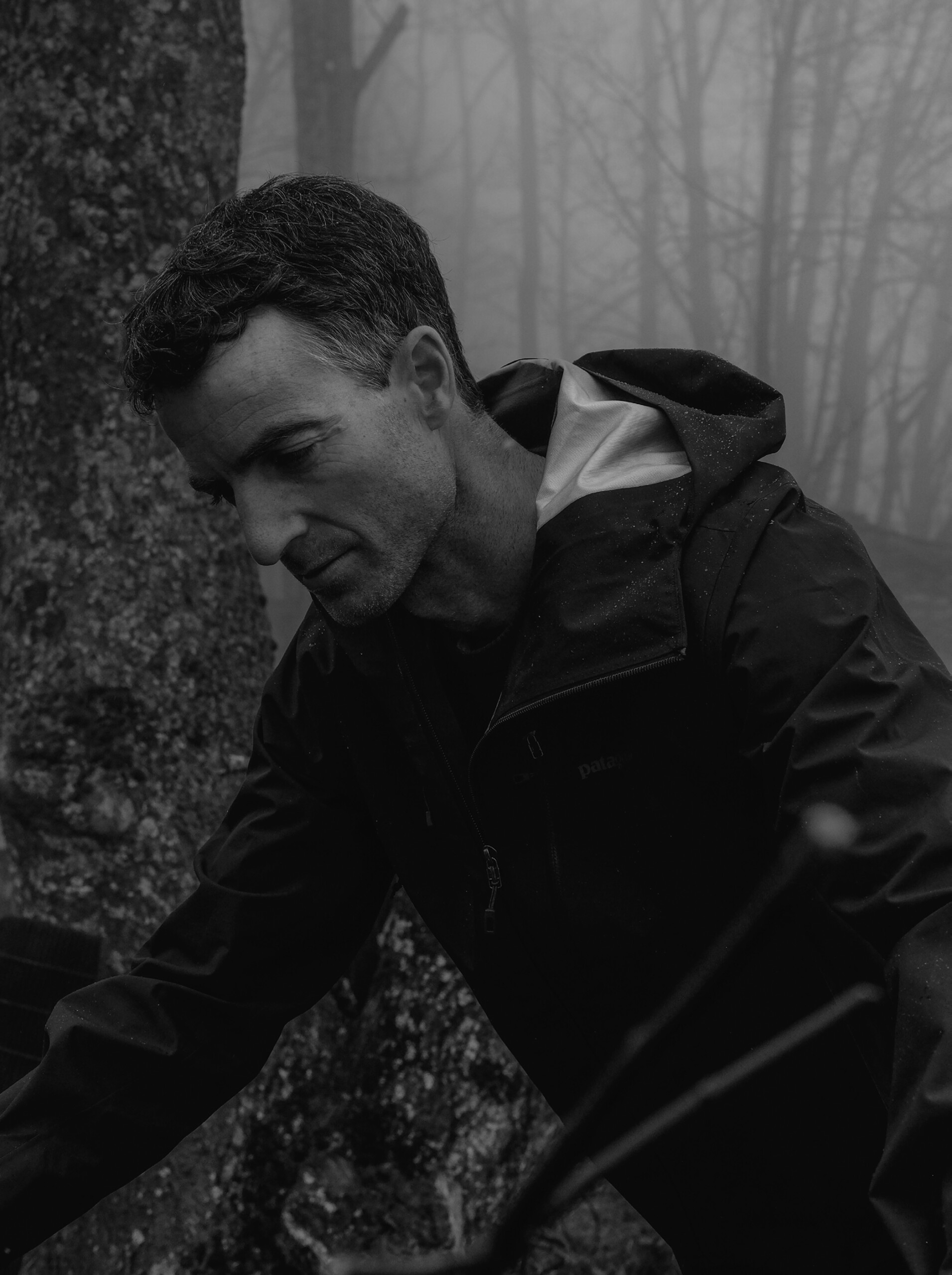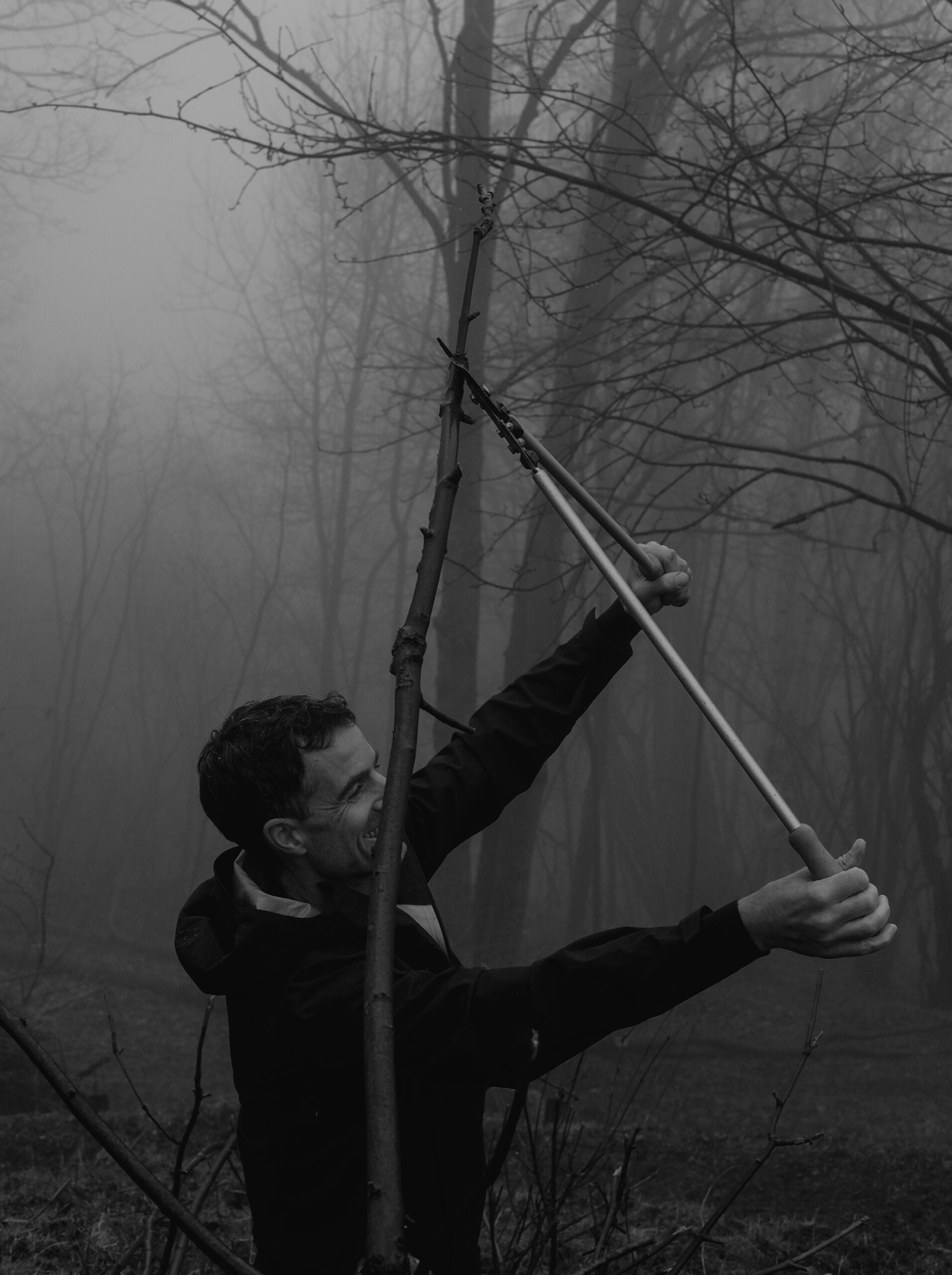In this day and age, it’s hard to believe in a bright future. The world is in crisis mode, striving to avert the worst, and that leaves little room for looking ahead and for life-affirming visions. But inspiration dies last, says Tobias Luthe. I catch up with the 46-year-old sustainability scientist and regenerative design expert on a video platform; he’s in Oslo, where he spends several weeks a year lecturing at the School of Architecture and Design. Luthe has chosen the snowy peak of Monte Viso as his background for the call. The iconic mountain in the Western Alps is a statement, a beacon of progress. Nature is Luthe’s fount of strength. Through and with nature, he shatters old certainties and dismantles spatial dimensions of our thinking in order to reassemble them into a new, richer and more multi-faceted whole.


At the foot of the stunningly beautiful Piedmontese mountain, Luthe has joined forces with an ever-growing community of scientists, students, entrepreneurs, activists, friends and visitors to establish the MonViso Institute, a real-world laboratory for testing and exploring sustainable living environments. By doing so, he and his team are helping to wrest the little mountain village of Ostana from the brink of extinction, while also releasing design from the yoke of joyless functionality or subjective aesthetics. For Luthe, artefacts like the Grown brand skis he designed and made from hemp, which won him the 2018 ISPO Eco Achievement Award, are keys to new areas of thought in which we can reimagine the interconnection and impact of our activities as interactions with our natural environment.
The war in Ukraine has shattered the peace order in Europe, the World Climate Council’s warnings of the irreversible impacts of climate change are becoming ever more dramatic, and COVID-19 has taken its toll on us. Does the topic of sustainability even have a chance in the face of these multitudinous crises?
T
L
The endless suffering unleashed by all these crises naturally takes front and centre stage. At the same time, every crisis is also the birth of an opportunity. Recurrent instability generates stability and is the only way to arrive at stable systems. It’s a law of nature. Throughout the entire history of humanity, sustainability has never been more important than it is now. We have reached a point where multiple and diverse crises are taking effect, overlapping and invigorating each other. To break this dynamic, we need new cultures of thinking. All challenge, whether it involves climate or environmental action, freedom or democracy, ultimately leads to a crucial question: how can we, as human beings, create an economic and social future that is worth living, based on limited ecosystem services?
-
-
-
-
What’s your answer to that question?
T
L
By establishing a new relationship with nature. Although we’re part of the natural world, we have completely lost our connection to it. Our relationship with nature is the path that will guide us through the complexity of the world we inhabit. We need to abandon the paradigm that nature and economy are irreconcilable opposites. Our connection to our natural environment is our impetus for developing new approaches, new scope for action and new practices—new tools—to deal with this quivering, jellied mass of complexity, as I imagine it. We can only achieve this by changing the cultural and mental approaches that we adopt. The bedrock for this change is trust: trust in ourselves, in our social networks and in nature itself. In fact, you could say, trust in mutual dependence with everything around us.
-
-
-
-
The term tools probably makes most people think of technical gadgets for making life easier, whereas the tools you mean are geared more towards spirituality. How can a fundamental trust in nature become the cradle of concrete progress?
T
L
Through outdoor experiences, activities set in natural environments that go beyond our comfort zone. Like mountain hikes or bike tours that engage the mind as well as the body. In this curated environment, we can start to ponder what a bioregional economy could be like. We need to realise that we need distance to achieve progress. Everything always has to happen so fast, and usually leaves us panting along behind. That goes for all areas—politics, consumption, mobility, information processing.
-
-
-
-
So is it fair to say you’re creating spaces for new ways of thinking through simplification and inspiration?
T
L
Yes, that’s it. We need a new culture of conscious living, and a simpler environment like a mountain village is very helpful in reaching this. It streamlines life; people can immerse themselves in the elements, ground themselves more effectively, recalibrate themselves and reacquaint themselves with real-life processes. One of our projects in Ostana involves building skis from hemp which we harvest ourselves at an altitude of 1500 metres. This draws wholly new horizons of experience and knowledge, not confined in a vacuum of specialism, but transdisciplinary. And while I’m exploring the versatility and diversity of hemp as a material, I’m also thinking about the future of Alpine tourism and encountering the consequences of climate change at first hand as I ski over the few remnants of the glaciers. During all this, I can familiarise myself with the eco-footprint of the product.
-
-
-
-


Dr Tobias Luthe is an academic transdisciplinary hybrid. He is currently Associate Professor for Sustainability Science and Regenerative Design at the Oslo School of Architecture and Design (Norway), ETH Zürich and the University of Freiburg. At ETHZ he is head of the Systemic Design Labs teaching project series, hybridising science, design and transformative praxis. He is co-founding director of the MonViso Institute in the Italian Alps, a real-world laboratory for sustainability transitions and regenerative design. And he co-founded Grown, a design-with-nature lab and experience collective winning industry awards for biocomposites such as hemp skis. Tobias is a mountaineering guide and photographer.
Please select an offer and read the Complete Article Issue No 12 Subscriptions
Already Customer? Please login.
